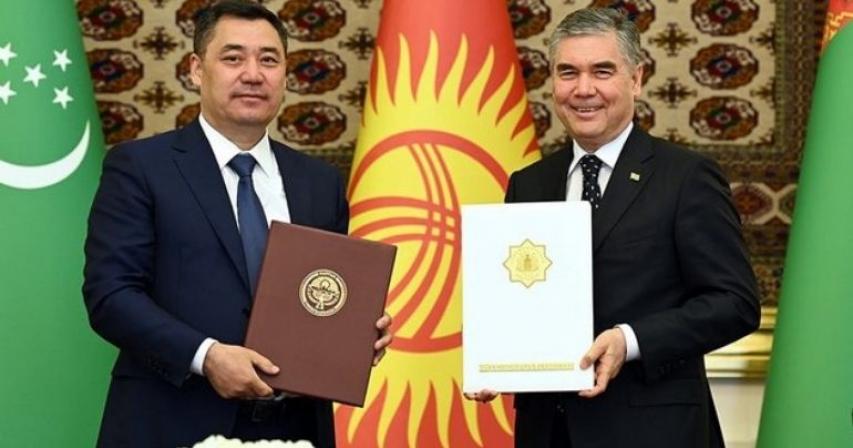China pressure 'undermining Australian universities', report says
- 4 years ago

Chinese pro-democracy students in Australia experience harassment and fear punishment if they speak out on sensitive issues, a new report says.
Human Rights Watch found such students feel surveilled in Australia, leading many to self-censor in classrooms.
Academics teaching China courses in the country say they have also felt pressure to censor themselves.
China's embassy in Canberra strongly rejected the report on Wednesday, calling it "biased".
It said Human Rights Watch had "decayed into a political tool for the West" and the group was "always biased on China".
The Australian government said it found the report "deeply concerning".
There has been growing concern about China's influence on local campuses in recent years, following a deterioration in relations between the two nations. Canberra is already investigating allegations of potential foreign interference.
In its report, Human Rights Watch warned that perceived pressure from China is undermining the academic freedom of Australian universities.
Australia's higher education system is heavily reliant on fee-paying Chinese students, which accounted in pre-Covid times for about 40% of all international students in the country.
There are currently about 160,000 Chinese students enrolled in Australian universities.
'Culture of self-censorship'
Human Rights Watch said it had interviewed nearly 50 students and academics in Australia and found an "atmosphere of fear" that had worsened in recent years.
Researchers said they had confirmed three cases where a student's activities in Australia had prompted police in China to visit or get in contact with their families there over their actions.
In one case, Chinese authorities also threatened a student with jail after they opened a Twitter account in Australia and posted pro-democracy messages.
Many said they feared fellow students reporting on them to the Chinese embassy.
"Fear that what they did in Australia could result in Chinese authorities punishing or interrogating their parents back home weighed heavily on the minds of every pro-democracy student interviewed," said the report.
The students interviewed - 11 from mainland China and 13 from Hong Kong - said there had been a rise in harassment in Australia after local pro-Hong Kong protests in 2019.
The report relayed accounts where students say they were abused verbally in person and online after joining rallies or expressing criticism of the Chinese government. Some were "doxxed" - where their personal details were shared online.
In most cases, the students did not report their experience to the universities.
"[They] believed that their university would not take the threat seriously, believing their university was sympathetic to nationalistic Chinese students or gave priority to maintaining their relationship with the Chinese government," the report said.
Its author, Sophie McNeill, said university administrators were "failing in their duty of care to uphold the rights of students from China".
Tutors and lecturers have also reported facing increased pressure, the report says. HRW interviewed 22 academics at Australian universities who teach China studies or Chinese students.
More than half of those interviewed self-censored when talking about China, Ms McNeill found.
Academics perceived to be critical of the CCP or flashpoint issues such as Taiwan, Tibet, Hong Kong and Xinjian had also been harassed or "doxxed" by students and internet users supportive of the Chinese government.
The report relayed one instance where a female tutor had her details shared on Chinese social media after defending a Taiwanese student from intimidation by a mainland Chinese student.
Human Rights Watch noted that such behaviour "does not represent most Chinese students in Australia… instead it is carried out by a small but highly motivated and vocal minority".
Nearly all the academics interviewed had noted an increased nationalism among their students from China since President Xi Jinping came to power in 2013, the report said.
Academics reported that on a few occasions, they had also experienced censorship from university management. Examples included instances where they were asked not to discuss China publicly or were deterred from holding China-related events.
The report quotes one unidentified academic who refused officials' request for a "sanitised" version of his Chinese Studies module when teaching students based in China online during the pandemic.
'Reports of intimidation and coercion'
For a number of years now, Australia has been debating the reach of China's alleged interference on campuses.
In the past Chinese authorities and media outlets have dismissed such concerns as smears, and the country's ambassador described as "groundless" allegations that Chinese students in Australia were being monitored for dissident behaviour.
In 2019, the Australian government set up a taskforce and new guidelines for universities to combat what it described as "unprecedented levels" of foreign interference.
Australia's Education Minister Alan Tudge described the Human Rights Watch report as "deeply concerning".
"We have already taken several actions to combat foreign interference and are working closely with the universities and we will soon be updating our university guidelines," he said in a statement.
A recent parliamentary inquiry has examined foreign interference in Australia's university sector. It is due to report in July.
Scrutiny has focused on research collaborations between Australian and Chinese universities - as well as the presence of Confucius Institutes - Chinese language and cultural centres funded by the Chinese government on Australian campuses.
Responding to the report on Wednesday, the industry body Universities Australia said it condemned all forms of coercion on campus or in the classroom.
"No student or staff member should feel constrained in expressing their views as part of the free exchange of views that is in the DNA of our universities," said chief executive Catriona Jackson.
She urged affected students to report the incidents but added that universities could not combat the issue alone and would work with the government.
Source: BBC
Comments